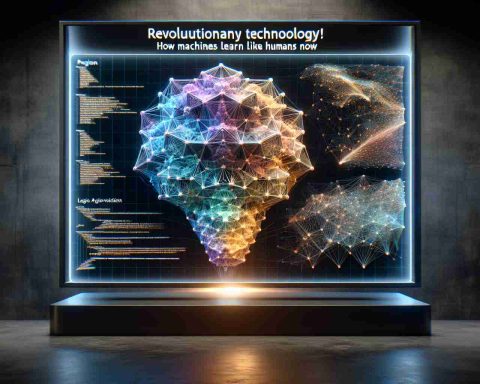A new era of political manipulation is on the rise as artificial intelligence technology advances. Recent advancements in generative AI have paved the way for the creation of deep fake videos and photos that are becoming increasingly indistinguishable from reality. Political figures, including presidents, prime ministers, and election candidates, are now vulnerable targets for AI manipulation.
In the realm of international politics, deep fake content has already been weaponized for propaganda purposes. In a recent incident, a video produced entirely by AI depicted a fictional future where the United States was facing crises in immigration and economics following the hypothetical victory of Joe Biden and Kamala Harris in the presidential elections. This type of AI-generated content poses a significant threat to public discourse and the spread of misinformation.
The impact of AI manipulation is not limited to international politics, as domestic political parties are also utilizing this technology for their own agendas. In a controversial move, a major political party released a campaign ad featuring a deep fake voice of a prominent political figure without disclosing the use of AI to the audience. This misleading tactic sparked criticism from experts and raised concerns about the ethical implications of AI-generated content in the political sphere.
In response to the growing threat of AI manipulation, social media platforms are beginning to take action. Companies like Meta, which owns Facebook and Instagram, have announced new policies requiring AI-generated content to be clearly labeled or removed. Despite these measures, the proliferation of AI-generated content poses a significant challenge for platforms, as the sheer volume of content makes it difficult to detect and moderate effectively.
As we navigate this new landscape of AI manipulation in politics, it is clear that safeguarding the integrity of information online will require collaborative efforts from technology companies, policymakers, and users alike. By staying vigilant and informed, we can mitigate the spread of AI-generated misinformation and uphold the transparency and trust essential for a healthy democratic discourse.
The Rise of AI Manipulated Content in Politics: Exploring Deeper Implications
Artificial intelligence (AI) manipulation in politics is a growing concern with far-reaching consequences that extend beyond the scenarios outlined in previous discussions. As we delve deeper into this issue, several critical questions emerge that warrant attention and consideration.
What are the potential long-term effects of AI manipulated content on political landscapes worldwide?
The proliferation of AI-generated misinformation has the potential to erode public trust in democratic processes and institutions. When individuals are exposed to realistic deep fake videos or photos portraying false scenarios, it can lead to widespread confusion and skepticism. Moreover, the viral nature of such content poses a challenge in terms of combating its influence and correcting misconceptions before they become ingrained in public consciousness.
How can regulatory bodies effectively address the ethical dilemmas posed by AI manipulation in politics?
One of the key challenges in combating AI manipulation lies in developing regulatory frameworks that balance freedom of expression with the need to prevent malicious actors from exploiting technology for deceptive purposes. Questions regarding the legality of using AI to create and disseminate manipulated content, as well as the responsibilities of platforms in monitoring such content, remain subjects of heated debate.
What advantages does AI offer in detecting and countering manipulated content, and what are the limitations of current technological solutions?
While AI can be leveraged to identify patterns and anomalies indicative of manipulated content, its effectiveness is contingent upon the sophistication of the algorithms and the availability of relevant data sources. Additionally, the cat-and-mouse game between creators of AI-generated content and detection algorithms complicates efforts to stay ahead of evolving tactics employed by malicious actors.
What are the broader societal implications of normalizing AI manipulation in political discourse?
The normalization of AI manipulation in political discourse not only undermines the credibility of public figures and institutions but also sets a dangerous precedent for the manipulation of public opinion through sophisticated digital means. In a climate where truth and fiction are increasingly blurred, cultivating critical thinking skills and media literacy becomes paramount in safeguarding democratic principles and informed decision-making.
The complex interplay of technological innovations, ethical considerations, and societal implications surrounding AI manipulation in politics underscores the urgent need for multifaceted solutions to address this evolving threat. As stakeholders continue to grapple with these challenges, fostering transparency, accountability, and digital resilience remains essential in preserving the integrity of political discourse in an era defined by rapid technological advancements.
For further insights on the intersection of AI technology and political manipulation, refer to World Economic Forum.


















